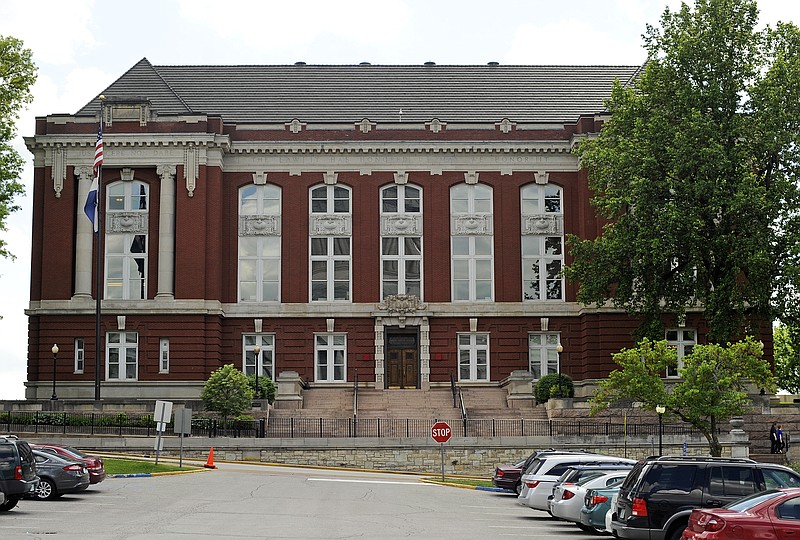A Freeburg woman is among eight people who will have their medical lawsuits against the University of Missouri sent back to the Missouri Western District Court of Appeals after a decision announced Tuesday by the Missouri Supreme Court.
Amanda Reinsch filed her suit in March 2018; all the suits were filed in Boone County.
They were filed after the patients underwent knee-replacement surgery at the Mizzou BioJoint Center saying their surgeries failed. The center is part of University of Missouri Health.
BioJoint surgeries, which are done to treat osteoarthritis in the knee, harvest patient stem cells to seed to bone surfaces on a graft of bone tissue and cartilage taken from a cadaver.
In Reinsch's suit, her attorney said she was a former professional boxer who in 2015 was suffering from bilateral knee pain. By January 2016, doctors recommended Reinsch undergo a Mizzou BioJoint Center surgery.
Dr. James Stannard, who did the surgery, reportedly told Reinsch he had been doing these surgeries for nine years with a low failure rate and the procedure would "give her a brand-new knee."
A procedure on Reinsch's left knee was done in May 2016. Stannard was listed as the primary surgeon, but Reinsch's attorneys noted James Cook, listed as the director of operations and scientific director of the center, was actually present for a longer portion of the procedure than Stannard. Reinsch reportedly was never told Cook was a medical doctor or licensed physician prior to the surgery.
Twelve days after the surgery, Reinsch returned to the doctor's office complaining of extreme pain in her left knee.
In June 2016, Reinsch went back for a six-week followup. The lawsuit states Stannard characterized Reinsch as being "much better" than she was a couple of weeks earlier. Reinsch claimed the pain in her knee was still severe, and by July 2016, Stannard noted excessive scarring had developed. By August 2016, Stannard did another surgery on Reinsch's knee, where he reportedly found "a huge amount of scar tissue present within the knee." However, Stannard characterized the grafts that had been put in during the original surgery in May 2016 as "good with no evidence of damage or problems."
After more treatment and procedures, Stannard noted by the end of 2016 that Reinsch was still having extreme pain and would probably have to undergo another surgery at BioJoint to replace the grafts.
In January 2017, Reinsch went to another doctor for a second opinion on her left knee. That doctor recommended a total replacement, which was done that same month and included the removal of what had been put in during the May 2016 surgery at Biojoint. The doctor also ordered a tissue test, which reportedly showed there was infection in the knee. Another surgery was done in April 2017 to complete the knee replacement, and the doctor reported Reinsch would never have normal range of motion in the left knee primarily due to significant scar tissue all around the knee joint.
Due to continued knee problems, Reinsch went to a third doctor, this time at Washington University in St. Louis, who said he was not familiar with the procedure done by Stannard. After his examination of Reinsch, he said her knee replacement was a total failure and had never fully healed. Eventually he did another joint replacement surgery on Reinsch, which was the ninth surgery performed on her knee since early 2016.
The MU Board of Curators moved to dismiss all counts against them, alleging they were protected by sovereign immunity.
The Boone County Circuit Court sustained the motions to dismiss and certified the judgment as final for purposes of appeal.
The patients appealed, and the cases were consolidated and sent to the court of appeals, which dismissed the patients' appeals for lack of jurisdiction.
In a unanimous decision, the Supreme Court retransferred the case back to the court of appeals for consideration of the merits of the patients' appeals. The justices said because the circuit court's judgments resolved all legal issues and disposed of all remedies sought against the curators, they were judgments that became final for purposes of appeal and the circuit court did not abuse its discretion in certifying the judgments.

